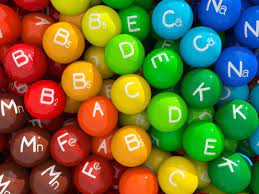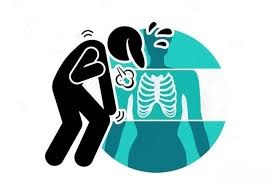As simple as PB&J. Eggs and Bacon. Some foods are better eaten together than alone. The same applies to vitamins and minerals.
One reason is that multiple supplements aren't always the best choice due to their synergistic effect -- bonus: a healthy heart.
By combining them together, you can get the benefits of different vitamins and minerals.

Magnesium and Vitamin B6
Evidence suggests that the magnesium in seeds and nuts may help control blood pressure, prevent arteriosclerosis, and maintain a normal heartbeat. In fact, vitamin B6, which supports magnesium absorption, is the ally of this powerful mineral.
Eating foods like spinach and almonds can help you get more magnesium, while eating raw foods like bananas can help you get more vitamin B6.
If you're having trouble increasing your daily dietary intake, ask your doctor if a vitamin B6 supplement might help.
Sodium and Potassium
These key minerals work in concert to regulate various biological activities, such as blood pressure. As many as one-third of adults in the United States have high blood pressure, and the CDC speculates that a high-salt, low-potassium diet may be a contributing factor.
Vitamin D and Magnesium
Vitamin D can help lower blood pressure and promote heart health, but it requires magnesium. Without magnesium, you cannot produce calcitriol from vitamin D. While you don't necessarily need to eat both nutrients, it's best to meet your daily needs for each.
Iron and Vitamin C
Red blood cells can only be formed in the body with the help of iron, an important mineral. Heme and non-heme are two types of heme found in seafood and meat. According to the National Institutes of Health (NIH), women ages 19 to 50 need 18 mg of iron per day, while men over 51 need 8 mg.
Because non-heme iron is less readily absorbed by the body than heme iron, vegetarians are at risk for iron deficiency, although this is not common in the United States, according to the National Institutes of Health. Untreated iron-deficiency anemia can lead to irregular heartbeats and even heart failure, according to the National Heart, Lung, and Blood Institute.
Vitamins B12 and B6 with folic acid
These B vitamins lower the amino acid homocysteine, and excess amounts can increase the risk of heart disease. People who eat more folic acid and vitamin B6 have a lower risk of coronary heart disease, according to a study published in November 2018 in the Review of Food Science and Nutrition.

Vitamin B12 is found in eggs, chicken, and milk; spinach provides vitamin B6. Some people may also benefit from taking well-formulated B-complex supplements that contain intact or activated forms of B vitamins, as some people inherit MTHFR mutations that affect their ability to metabolize homocysteine, causing heart disease.Be sure to discuss this with your doctor before you start any new dietary supplement.